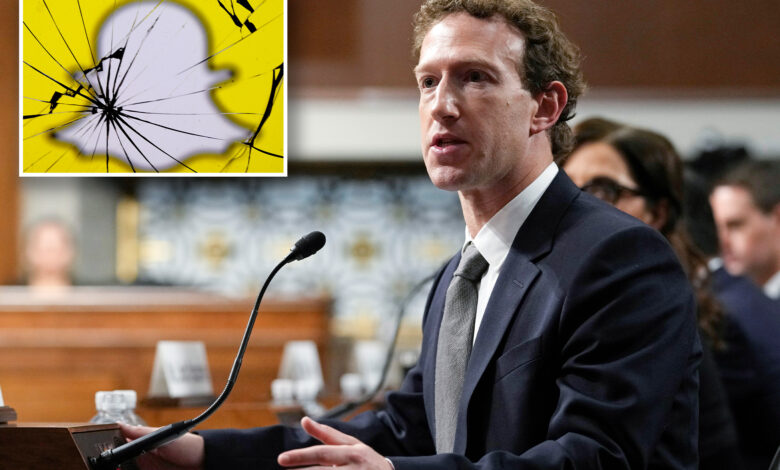Mark Zuckerberg told Meta executives to obtain Snapchat data: court docs

Meta boss Mark Zuckerberg once pressed executives to “figure out” how to obtain encrypted data from rival Snapchat in order to gain a leg up in the advertising market, according to unsealed court documents.
Zuckerberg gave the directive in a 2016 email to Javier Olivan, who formerly served as Facebook’s head of growth and has since become Meta’s chief operating officer, and two other executives.
At the time, Facebook was facing fierce competition from a rising Snapchat, which had yet to go public and was experiencing rapid user growth.
“Whenever someone asks a question about Snapchat, the answer is usually that because their traffic is encrypted we have no analytics about them,” Zuckerberg wrote in the email.
“Given how quickly they’re growing, it seems important to figure out a new way to get reliable analytics about them. Perhaps we need to do panels or write custom software. You should figure out how to do this,” he added.
The email surfaced this week as part of a class-action lawsuit currently underway in California federal court. Meta stands accused of deceiving users about its data collection practices as part of a broader anti-competitive effort to dominate the social media market.
Zuckerberg’s order jumpstarted an internal effort to glean useful data about Snapchat usage that was known internally by the project name “Ghostbusters” – a likely reference to Snap’s logo, according to the documents.
The Post has reached out to Snap for comment.
To fulfill the boss’s wishes, Facebook employees allegedly used an app called Onavo, which was shut down in 2019 following revelations that the company had paid teenagers in exchange for tracking their online habits, TechCrunch reported.
As a result of the effort, Facebook developed software “kits” that allowed the company to “intercept traffic for specific sub-domains, allowing us to read what would otherwise be encrypted traffic so we can measure in-app usage,” according to a July 2016 email cited in the documents.
Facebook later used the same tactic to glean crucial data from rivals such as Alphabet-owned YouTube and Amazon, the suit alleges.
“There is nothing new here – this issue was reported on years ago,” a Meta spokesperson said. “The plaintiffs’ claims are baseless and completely irrelevant to the case.”
Meta also fired back in its own court filing on Tuesday.
“Snapchat’s own 30(b)(6) witness on advertising confirmed that Snap cannot ‘identify a single ad sale that [it] lost from Meta’s use of user research products,’ does not know whether other competitors collected similar information, and does not know whether any of Meta’s research provided Meta with a competitive advantage,” the filing said.
The lawsuit is one of several legal headaches for Meta, which has faced intense scrutiny from federal lawmakers over its failure to protect underage users from harmful content that has fueled anxiety, depression, body image issues and even self-harm among teenagers.
In October, a coalition of 33 state attorneys general sued the Facebook and Instagram parent for allegedly ignoring the “sweeping damage these platforms have caused to the mental and physical health of our nation’s youth” and engaging in “deceptive and unlawful conduct.”




